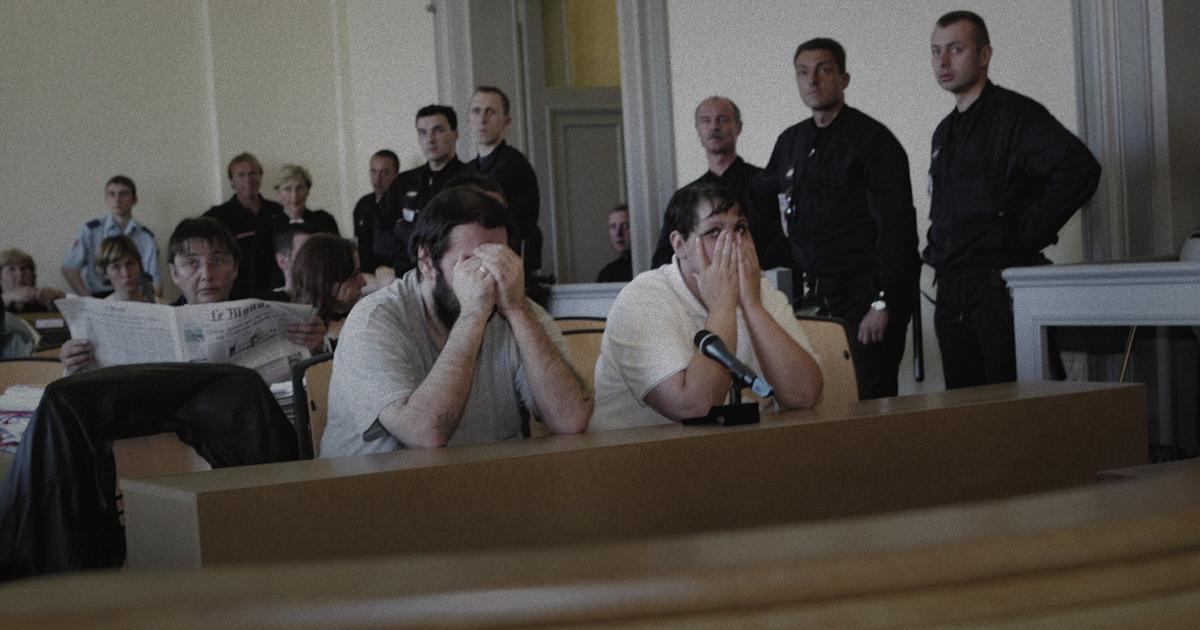The verdict in the trial of Peter-Helge H. is short: The retired judge is acquitted by the Regional Court of Rostock from the charge of right-wing. The prosecution had accused him of deliberately not processed 816 fines and finally discontinued because of prescription.
Meanwhile, the presiding judge Uwe Fischer takes enough time to justify this decision. First, he outlines the duties of the defendant. This was since 1994 at the District Court Güstrow busy. From mid-October 2013 to mid-July 2015, he was responsible for regulatory offenses. There he worked on fines, against which the recipients had objected.
If the decisions were received at the district court Güstrow, Peter-Helge H. had within six months to set a date for the hearing. He then had six months left to make a decision. "The emphasis is on speedy," says the chairman: Peter-Helge H. had the power of his judicial office, the obligation to actively promote his procedures.
Did he do this, or did he violate the law just by doing nothing, that is by doing nothing? To answer that, the Rostock judges looked at how the defendant organized his work.
H. always negotiated on Mondays and Wednesdays. From 10 to 12.30 clock he scheduled up to 18 procedures. From 1 pm on, he completed one or two special administrative offenses, for which he needed more time.
The new incoming procedures sorted H. on the date of their receipt on a pile. He did not check if he could maybe decide on the case. He took the files from the stack and distributed them on the dates he had for a period of six months still free. There were always too many files for too few appointments, so that the cases lying further down in the stack ran straight into the statute of limitations: H. stopped the proceedings.
"This omission is a violation of the law," says Judge Uwe Fischer, but he and his colleagues had just had to examine whether the defendant objectively and subjectively had been able to do his job. Did the defendant really get too many files on the table as he used to argue in his defense? Or, for personal reasons, was he unable to create a full judge's seat?
He became mentally ill
Already in 2004, Peter-Helge H. had a so-called Dezernat because of his lack of individual skills for a job as a judge: There he had to work fewer and easier procedures than his colleagues. In order to limit the damage, if H., despite all consideration, would not be able to fill his time, the district court in Güstrow used it in the area of fine fines: because proceedings that are held there are time-barred and not a burden on colleagues. At that time, the calculus had also risen tolerably, reported the director of the district court Güstrow in the witness stand.
In 2008, however, Peter-Helge H. saw a turning point: In February, he was convicted by the Güstrow district court for insulting him, and in June a lawsuit against him for an infringement was ended with an acquittal. Shortly thereafter he became mentally ill. After a long absence H. resumed his activity.
In 2011, his workload increased drastically: H. had to do civil proceedings and by a district reform also landed several fine proceedings from Bad Doberan on his stack. Statistically, his workload was now just over 100 percent: "Objectively, he was able to process the procedures," said the chairman Fischer.
But H., who had barely mastered his Schon department, wrote one overload ad after the other: eleven in 2011, 13 in 2013, despite his colleagues having lost 220 cases. H. fell ill again, hard to motivate and concentrate. He had not recovered from this illness, the psychiatric expert told the judges.
Some colleagues assumed he was just lazy
H. wanted to keep his facade upright. He has never disclosed his illness openly, not even to his current defense. This silence has often led to misunderstandings in the circle of colleagues; some colleagues assumed he was just lazy. However, the director and another judge from Güstrow District Court both said that they did not feel that H. was lazy.
An infringement by omission is only punishable if there is no willingness to perform. In any case, the Regional Court of Rostock comes to the conclusion that in the case of Peter-Helge H. inadequate individual capabilities were combined with illness-related performance restrictions - and the defendant could not be accused of their effects. Rather, the president of the district court of Rostock should be criticized, who has a duty of care towards H.
"The employer would have had to take action here earlier," says Uwe Fischer: Since 2008, the result of the first medical examination of the defendant was known, also knew the employer of its permanent underperformance. Nevertheless, it took until July 2018 before Peter-Helge H. was sent into early retirement.







/cloudfront-eu-central-1.images.arcpublishing.com/prisa/JPLHIZNLKZDEJIZJ72527GHOWU.jpg)







